This article was written by Kelli Miller, LCSW, MSW and by wikiHow staff writer, Dev Murphy. Kelli Miller is a Psychotherapist based in Los Angeles, California. Kelli specializes in individual and couples therapy focusing on relationships, depression, anxiety, sexuality, communication, parenting, and more. Kelli also facilitates groups for those struggling with alcohol and drug addiction as well as anger management groups. She is the author of “Professor Kelli’s Guide to Finding a Husband” and the award-winning and best-selling book “Thriving with ADHD”. Kelli co-hosted an advice show on LA Talk Radio and is a relationship expert for The Examiner. She received her MSW (Masters of Social Work) from the University of Pennsylvania and a BA in Sociology/Health from the University of Florida.
There are 11 references cited in this article, which can be found at the bottom of the page.
This article has been viewed 6,651 times.
Relationships are hard, and contrary to what Disney movies told us growing up, “happily ever after” doesn’t always mean perfect bliss. This makes it hard to know if our dissatisfaction in a relationship is just a little rough patch—or if it’s a sign we should break things off. If you’re considering ending things with your partner and aren’t sure if your reason is valid, keep reading. We’ve made a list of reasons you might break things off with your partner.
This article is based on an interview with our professional dating coach and matchmaker, Laura Bilotta. Check out the full interview here.
Things You Should Know
- Think about how your life would be different if you weren't in this relationship. Would it be better? This may be a sign it's not meant to be.
- It might be worth it to take time away from your partner if you feel like you're losing your identity in the relationship.
- Consider breaking up if your partner doesn't seem as invested in the relationship as you are or makes you feel less-than.
- Ask yourself if you're in the relationship out of fear of being alone. There's nothing wrong with being lonely, but it isn't a good reason to be with someone.
Steps
You realize you want to be single.
-
It doesn’t matter how great your partner is if you just want to be single. Maybe your relationship is getting more serious than you expected, and you want to back out quietly. Or maybe you’ve been together for a long time and have only lately realized how much you miss being on your own. Your partner could be doing everything right. It doesn’t matter, though, if you aren’t able to commit to a relationship.[1] X Research source
- If you’re not sure about breaking up, talk to your partner about your relationship concerns. They may be able to alleviate them.
You keep imagining how good life would be without them.
-
Daydreaming about life without your partner may be a sign to break up. It’s natural to fantasize a little about what you could do if you weren’t together: move anywhere you wanted, see other people, and have a whole different life. Even healthy couples do this—a little. But if you’re constantly daydreaming about what you could be doing and accomplishing if you weren’t in your relationship, it might be worth considering what your relationship brings to the table.
- It might sound clinical or cold, but making a pro-con list can help you figure out if it’s worth it to stay in your relationship or if you’d be better off flying solo. What benefits does your relationship bring to your life? What negatives?
- Sometimes it's just normal to imagine what life would be like alone, but if it's a constant thought, then there may be some underlying reasons why.
Your primary reason for staying is fear of being alone.
-
Desperation isn’t a good enough reason to stay with someone. Lots of people choose to stay in relationships that aren’t working out—even relationships that are abusive—out of fear of being alone. While it’s no crime to be lonely, if you’re only with your partner out of fear of being single forever, it’s probably worth reconsidering if the relationship is really serving you.[2] X Trustworthy Source PubMed Central Journal archive from the U.S. National Institutes of Health Go to source
You’re forgetting who you are.
-
It’s easy to lose our identity in a relationship. Since you've started seeing your partner, maybe you've sensed the old you slipping away: you spend less time writing, singing, or engaging in whatever other passions you might have and more time hanging with your significant other. Maybe you've fallen out of touch with good friends because you've been spending so much time with your partner's buddies. Your partner may be the cream of the crop, but if you’re finding yourself living in their orbit and abandoning your own values, dreams, and life, it may be time to step back and reevaluate things.
You keep breaking up and reconciling.
-
If you keep breaking up, maybe it’s because you’re supposed to. “The third time is a charm” doesn’t apply here: if you and your partner keep breaking things off and getting back together, it might indicate your relationship is unstable and chaotic. Reflect on why the relationship keeps falling apart, and why you’re both always willing to keep trying again.[3] X Research source
Your relationship standards have changed.
-
You may have outgrown your partner. This is especially common when people start dating while they’re in their teens or early twenties and are still figuring out who they are and what they value. Regardless of your age, you’ve no doubt learned a lot about relationships, about your partner, and about yourself during your time together, and maybe you’ve come to realize that you want more than what they’re offering you. The heartbreak may be painful now, but sacrificing your standards will be a lot more painful in the long run.
- Maybe you began dating someone who didn't seem to listen to you or really see you, and you've realized you need someone more supportive.
- Or perhaps you've realized you're expending a lot of energy on cooking or cleaning for your partner, and you need a partner who's more mature and can take care of themselves.
- You may have realized you hold certain beliefs or values that aren't compatible with your partner's and it's causing some friction in the relationship.
- Perhaps you've realized your and your partner's love languages don't align and you struggle to show one another affection: maybe you crave more physical attention, while your partner feels like they're missing out on quality time.
One of you must move and you don’t want to be long-distance.
-
Long-distance works for many couples, but it takes a toll on others. Maybe you just got your dream job—and it means picking up and leaving. This can cause a major strain on the relationship. If you or your partner is preparing for a big move away from the other, you might be reevaluating if you want to stay in the relationship or try to move on, and that’s totally valid.[4] X Research source
You can’t see a future with them.
-
If there’s no future with your partner, it’s best to break up sooner than later. It's a painful truth that people don't stop growing once they enter a relationship, and you might be growing in different directions—or maybe you always knew you wanted different things, but you hoped the other person would change their mind (always a no-no). If you’re with someone and you both have very different visions of the future, it probably means your relationship has an expiration date.
- Maybe you long to live in a foreign country one day and retire with a bunch of children and grandchildren, while your partner really has their heart set on living and dying in their hometown with a pet turtle as a companion.
- Or maybe you just picture the future and don't see them in it: maybe you see someone with a different personality, someone who meshes with your world a bit more. Or maybe you don't see anybody at all.
You’re not sexually compatible.
-
Everything could be great, but if the sex is bad, the relationship may suffer. You and your partner might have amazing chemistry when it comes to chatting into the wee hours of the morning. But if they don’t know what to do to satisfy you (or worse, don’t care), if there’s just no emotional intimacy, or if you both have incompatible sex drives, it could take a toll on the relationship.[5] X Research source
- Some people argue that sex isn’t as important in a relationship as personality, and while that may be true, sexual compatibility can play a huge role in a couple’s happiness and level of intimacy.
You can’t count on them.
-
If you can’t rely on your partner, it’s not a good relationship. Whether they aren’t there when you need them or they neglect you, being able to count on your partner is what makes them a partner. A good relationship is one where both members are there for one another through thick and thin.[6] X Research source
- Do you regularly avoid asking them for support or favors because you know they won’t be there for you? This is a sign the relationship is breaking down.
Your values clash.
-
When it comes to your core values, opposites don’t always attract. Sure, playful arguing is a cornerstone of flirtation, and you might get a thrill from a heated debate over which Star Wars movie is the worst. But when it comes to bigger issues—such as where they stand on certain political issues or how their religious beliefs may conflict with yours—a clash can signify the relationship just isn’t compatible.
- Many couples have different religious traditions and are very compatible, but if it's important to either of you to have the same beliefs, think long and hard about whether to keep pursuing a relationship with them.
- No couple is ever perfectly compatible, but in a healthy relationship, partners can discuss things they disagree on respectfully and patiently. If your partner and you can't stop fighting over the things you don't agree on, it may be time to call it.
One of you wants an open relationship and the other doesn’t.
-
Both partners must agree to an open relationship for it to work. If one of you wants to see other people, the other must be on board—otherwise, they’re likely to feel resentful and insecure. At the same time, if the person who wants to open the marriage doesn’t for the sake of their partner, they may feel resentful or restless over time for not getting something they want or need. In the end, if you’re struggling to agree on monogamy, it might be a sign you’re just not compatible.[7] X Research source
You want different things.
-
If you both have clashing deal-breakers, it's best to address it now. Maybe when you first began dating, it didn’t seem worth it to bring up the fact that you definitely don't want children, but now that your partner has said they do, you’re realizing this could spell doom for your relationship. If you’ve got any deal-breakers your partner doesn’t share, it may be a sign the relationship isn't going to last.
- It can be tempting to tell your partner—and yourself—that that big deal-breaker you thought you couldn’t live without is really not all that important. But be realistic about your deal-breakers: if you compromise on them, you may end up regretting it and resenting your partner.
You have some baggage to deal with—alone.
-
Sometimes it’s only possible to grow while you're away from your partner. A healthy relationship with a supportive partner can sometimes help you overcome trauma from previous relationships or other abusive or traumatic situations. But other times, a relationship can be too heavy to handle at the moment, and you need the space and privacy to deal with your baggage on your own for a while. Whether you have unresolved trauma that your relationship is interfering with, or you just need some time alone to grow a little, ask yourself if your relationship is helping you be your best, healthiest self.[8] X Research source
- Your partner could be a great person and they could really want to support you, but that doesn’t mean they can. Some things must be dealt with independently.
- It may be that you just aren't able to address your baggage with this particular partner, for whatever reason. Maybe they struggle to be patient while you heal from past trauma, or they don't understand what you need to thrive in the relationship. It's possible another partner would be a better fit.
They betrayed you and you can’t move past it.
-
No partner is perfect, but some offenses are too much to get past. As it turns out, love doesn't mean never having to say you’re sorry. And even after your partner apologizes for wounding you, it might not be enough. If you’re struggling to move beyond an offense your partner committed against you—say, financial infidelity, or having an affair—you might be rethinking the relationship, and that’s valid.
- Your partner might sincerely regret what they’ve done, but that doesn’t mean you need to rush to forgive them if you’re still struggling to overcome the pain they’ve caused.
- It might be worth considering taking a break from the relationship if you still love your partner but don’t know yet if you can forgive them. A break will give you both time to be alone and reflect on the relationship, without officially calling it quits just yet.
You’re more invested in the relationship than they are.
-
Mismatched investment can make one partner resentful of the other. Are you the one making dates, cooking romantic dinners, and initiating emotionally intimate conversations? Lots of relationships suffer from partners who are unequally invested. Almost inevitably, this ends with the over-investing partner getting resentful and throwing their hands up.[9] X Research source
You’re trying harder to fix things than they are.
-
If they're not trying to mend the relationship, are they worth your effort? All relationships go through rough patches, but both partners must work on repairing things for the relationship to work. if you’re the only one actively working to repair the connection, this might be a sign it’s just not worth repairing.
They make you feel less-than.
-
If your partner criticizes you, you’re better off alone. It’s likely your partner struggles with insecurity of their own and is projecting it onto you. But in a healthy relationship, both parties build one another up and are one another’s biggest cheerleaders. If your partner regularly puts you down or makes you feel like you’re less-than, ask yourself if it’s really the right relationship for you.[10] X Research source
You’re fighting—a lot.
-
All couples fight, but healthy couples fight rarely and swiftly. If you and your partner argue all the time—and, just as importantly, if you take a long time to repair things—it could be a sign it’s time for a break. Constant fighting may indicate you and your partner have some communication issues that could be worked out, or it may mean you’re just not compatible.
- It’s especially important to consider the effect fighting has on your children, if you have any. Because children’s brains and sense of boundaries are still developing, they can’t readily understand that your fights with your partner have nothing to do with them.
The relationship is toxic.
-
If your partner keeps causing you grief, you may be better off without them. Maybe your partner is actively abusive or manipulative, or maybe their struggles with mental health or addiction have begun to swallow your relationship. Maybe they just bring a lot of negative energy to your relationship by being possessive, bitter, or moody and it's taking a toll on your own well-being. Whatever the cause of the toxicity, however good your partner's intentions may be, sometimes it's best to end the relationship and distance yourself from them.[11] X Research source
- Ending a relationship that's become toxic can be hard to do if you really love your partner, but your safety and well-being are so much more important.
- Put your own health and safety first before your relationship.
- If you’re struggling with an emotionally, physically, or sexually abusive partner, consider reaching out to the Domestic Violence Support Hotline for help. Share what you’re dealing with a close friend or family member or therapist, and remember, you’re not alone.
Expert Q&A
-
QuestionWhat are common excuses people use to break up?
 Kelli Miller, LCSW, MSWKelli Miller is a Psychotherapist based in Los Angeles, California. Kelli specializes in individual and couples therapy focusing on relationships, depression, anxiety, sexuality, communication, parenting, and more. Kelli also facilitates groups for those struggling with alcohol and drug addiction as well as anger management groups. She is the author of “Professor Kelli’s Guide to Finding a Husband” and the award-winning and best-selling book “Thriving with ADHD”. Kelli co-hosted an advice show on LA Talk Radio and is a relationship expert for The Examiner. She received her MSW (Masters of Social Work) from the University of Pennsylvania and a BA in Sociology/Health from the University of Florida.
Kelli Miller, LCSW, MSWKelli Miller is a Psychotherapist based in Los Angeles, California. Kelli specializes in individual and couples therapy focusing on relationships, depression, anxiety, sexuality, communication, parenting, and more. Kelli also facilitates groups for those struggling with alcohol and drug addiction as well as anger management groups. She is the author of “Professor Kelli’s Guide to Finding a Husband” and the award-winning and best-selling book “Thriving with ADHD”. Kelli co-hosted an advice show on LA Talk Radio and is a relationship expert for The Examiner. She received her MSW (Masters of Social Work) from the University of Pennsylvania and a BA in Sociology/Health from the University of Florida.
Psychotherapist Some common excuses include statements like I have a lot going on right now, I have to focus on work, or I don't want to date right now.
Some common excuses include statements like I have a lot going on right now, I have to focus on work, or I don't want to date right now.
You Might Also Like
 How to Get over a Breakup when You Still Love Each Other: 11 Things to Do
How to Get over a Breakup when You Still Love Each Other: 11 Things to Do
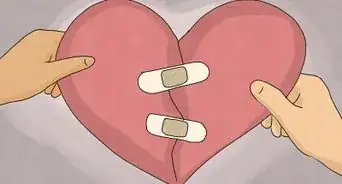 How Long Should I Wait to Text My Ex-Girlfriend?
How Long Should I Wait to Text My Ex-Girlfriend?


 How Long Should You Wait to Date After a Breakup? Expert Advice on the Best Time to Move On
How Long Should You Wait to Date After a Breakup? Expert Advice on the Best Time to Move On






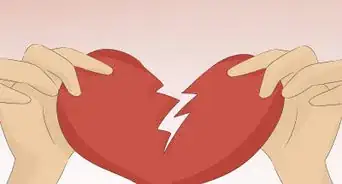
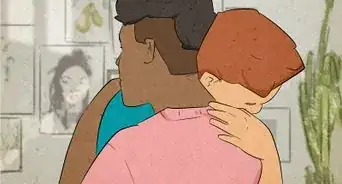
 How to Let Someone Down Easy After a Few Dates, with Examples
How to Let Someone Down Easy After a Few Dates, with Examples
Expert Interview

Thanks for reading our article! If you'd like to learn more about ending a relationship, check out our in-depth interview with Kelli Miller, LCSW, MSW.
References
- ↑ https://www.psychologytoday.com/us/blog/living-single/201701/7-questions-help-you-decide-if-youd-be-happier-single
- ↑ https://pubmed.ncbi.nlm.nih.gov/24128187/
- ↑ https://www.psychologytoday.com/us/blog/meet-catch-and-keep/201407/the-truth-about-again-again-couples
- ↑ https://www.psychologytoday.com/us/blog/social-instincts/202211/3-keys-making-long-distance-relationship-work
- ↑ https://www.psychologytoday.com/us/blog/the-power-pleasure/201203/sexual-compatibility-the-importance-your-satisfaction
- ↑ https://www.psychologytoday.com/us/blog/conquering-codependency/202209/lopsided-relationships-when-your-needs-always-come-last
- ↑ https://www.psychologytoday.com/us/blog/the-polyamorists-next-door/201601/when-your-partner-wants-non-monogamy-and-you-don-t
- ↑ https://www.psychologytoday.com/us/blog/rediscovering-love/202201/how-partners-past-trauma-can-disrupt-relationship
- ↑ https://www.psychologytoday.com/us/blog/sliding-vs-deciding/201611/what-happens-when-partners-arent-equally-committed




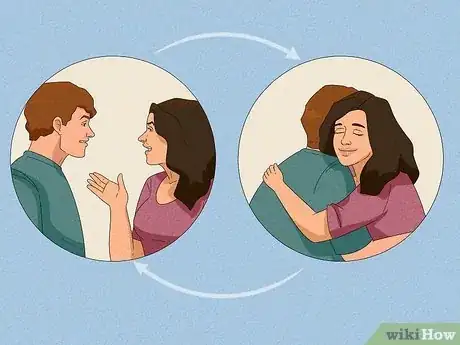


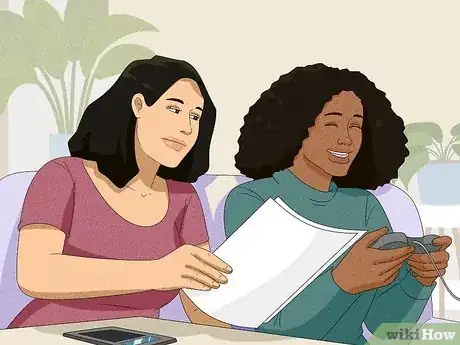




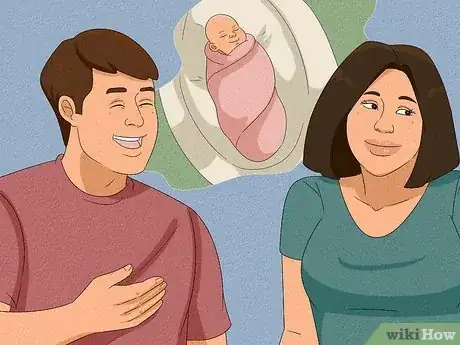


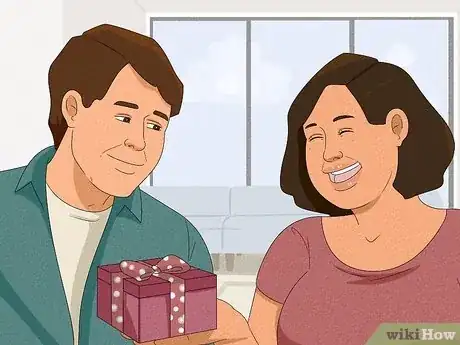
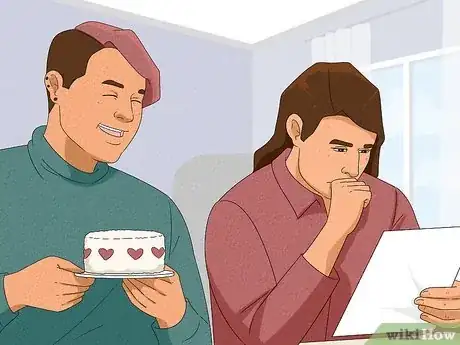
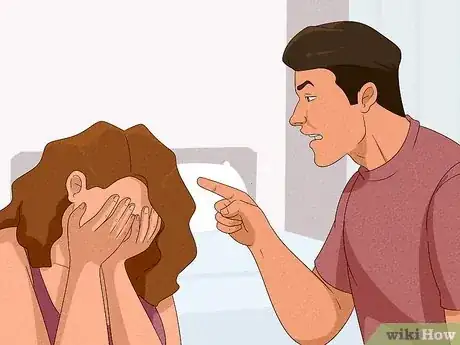
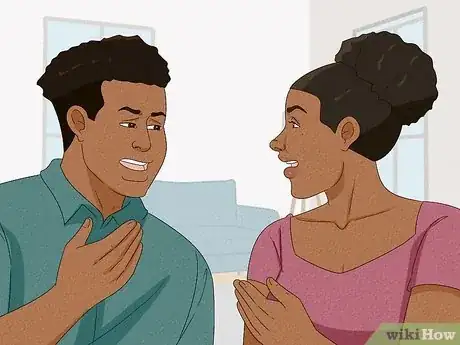









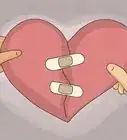





































Medical Disclaimer
The content of this article is not intended to be a substitute for professional medical advice, examination, diagnosis, or treatment. You should always contact your doctor or other qualified healthcare professional before starting, changing, or stopping any kind of health treatment.
Read More...